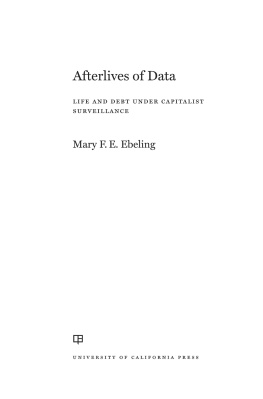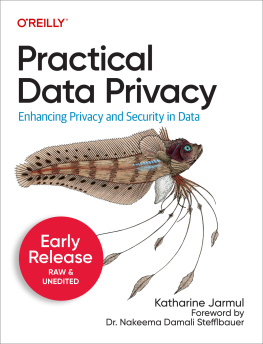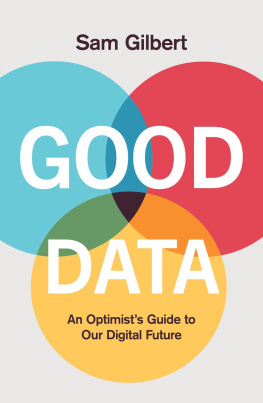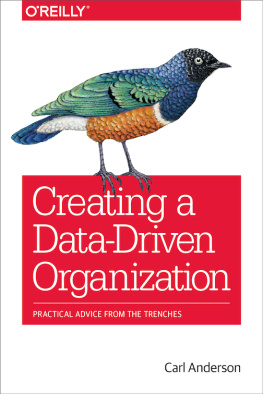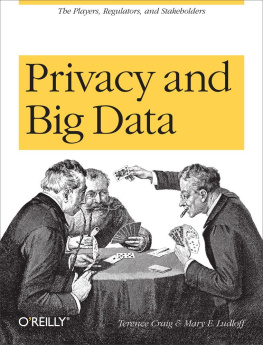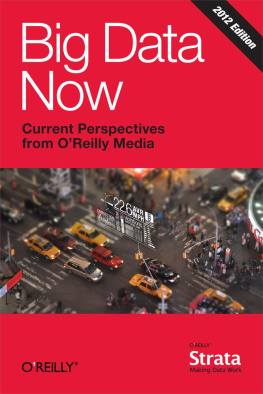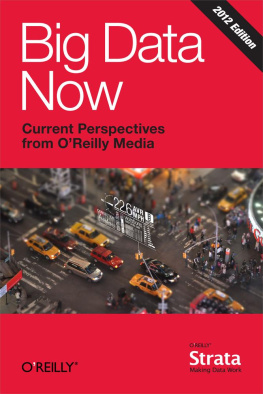Acknowledgments
The essayist and humorist Fran Lebowitz, well known for her decades-long writers block, sums up her abiding aversion to writing thusly: Contrary to what many of you may imagine, a career in letters is not without its drawbackschief among them the unpleasant fact that one is frequently called upon to sit down and write (Lebowitz 2011, 152). Never have truer words spoken to my own solitary agony.
Writing any book is such a long and lonely process. And writing an academic book, one that only a few hearty souls will be able to bear to read (but thank you for reading this one!), almost seems like a pointless exercise in self-loathing and self-imposed punishment. To focus on writing a book during a traumatizing year of desperation, anxiety, and loss spurred on by the pandemic, by the uprisings against fascism and social injustice, and by the insurgencies against democracy, was exceptionally challenging. Not only because it was hard to concentrate and think coherently during such an unprecedented time, but also because it felt to me like such an indulgent and selfish act. Yet in spite of my feelings about the drudgery of writing and my guilt about not doing more to help people vote or eat or stay safe, the book has, miraculously, been written. But books are never written alone, even if writing them can be a lonesome exercise. I have the great privilege to be in community with other scholars, colleagues, friends, and family who are much smarter and wiser than I am, and who all, in one way or another, contributed to this books existence. In all honesty, this book would not have been possible without the guidance, insight, encouragement, generosity, and patience of so many others. I am deeply grateful that all of you are in my life. But bear with me as I acknowledge and thank those specific people, and some institutions, that helped me along the way to complete this book.
Some of the core ideas in Afterlives of Data were developed while I was a resident fellow at the Wolf Humanities Center at the University of Pennsylvania during the 201718 academic year. That years theme was afterlives, and our weekly seminars had a direct influence on the core premise of the book: that our personal health and financial data live multiple and disparate afterlives, beyond their initial usefulness or original purpose. The theme was led by the phenomenal feminist translator and classical studies scholar Emily Wilson, with support from literature scholar and center director James English. Both deserve my thanks for including me in that years cohort. I was inspired, invigorated, and profoundly moved by the brilliance and dedication of each and every participant. I continue to consider myself lucky to have learned about the European medieval concept of the soul, anchoress Julian of Norwichs Revelations of Divine Love , the rare books stolen from Jewish families by the Nazis and rescued by archivists, and scientific investigations into reincarnated lives. Thanks to all of the fellows who inspired me every Tuesday, including James Bergman, Jacob Doherty, Adam Foley, Darin Hayton, Christopher Lee, Colin Williamson, Kathy Peiss, Simon Richter, Salamishah Tillet, Fatemah Shams, Delia Wendel, Huda Fakhreddine, Sierra Lomuto, Orchid Tierney, and Sara Ray. I was particularly moved by the work of Delia and Fatemah, both of whom helped to excavate and memorialize collective traumas, and to bring dignity to those who have survived unspeakable loss. Thanks to Meg Leja especially for our conversations about the intersectional and gendered sacrifices that are expected of us in academia, and for sharing the Eagles Super Bowl win with me. I will never be a football fan but I will always love the Eagles. Particular gratitude is owed to Projit Mukharji for his interest in my work, and to S. Pearl Brilmyer for the close reading that she brought to my writing. I must acknowledge and thank Sarah Milinski, not only for her organizational support, but perhaps more significantly for our shared love for Prince.
Another seminar that influenced some of this book, in particular chapter 6, was the Seminario sobre la deuda, held at Beta Local in San Juan, Puerto Rico, during June 2016, and organized by the brilliant powerhouse of a filmmaker, an artist, and a codirector, Sofa Gallis Muriente. There I learned from activists, artists, filmmakers, economists, journalists, poets, performers, musicians, and politicians about how the Puerto Rican national debt is a crisis of colonization and US imperialism that shapes every aspect of life on the archipelago. My return to Beta Local in 2019 to interview some of those that I had met in the debt seminar, was only possible because of the generosity and support of Betas codirectors, Sofa, Pablo Guardiola, and Michael Linares. Thank you all for the space to think, for the engaging conversations in the Callejn bar, and for all the enthusiasm for our collaborations, especially when it comes to making Ethiopian cuisine. Thanks also goes to Alix Camacho, Gisela Rosario Ramos Rosa Vazquez, Bea Santiago Muoz, Marina Reyes Franco, Monxo Lopez, Dave Buchen, Tony Cruz, Macha Coln, Marichi Sharron, Oli, and Dziga. And I must acknowledge Blanca Rosa Rovira Burset and her lovely elderly students at the El Escambrn water aerobics class. Thanks for inviting me to join in and for singing the songs of your shared childhoods. You all gave me a cherished memory of San Juan. I cant wait to join you again.
Many thanks are due to some of the phenomenal data scientists whom I have met along the way and who patiently helped to translate their work for me. Your kindness, wisdom, and generosity are deeply appreciated Aixa Guo, Anuj Shahani, Sige Diagne, Randi Foraker, and Po-Yin Yen.
A special mention of thanks is owed to several people scattered across Europe for inviting me to join in seminars and conversations. These include everyone in the Data Studies and Knowledge Processing Group within University of Exeters EGENIS Centre, led by Sabina Leonelli, with an extra helping of gratitude to Niccol Tempini, Gregor Halfmann, and Sabina herself. Thanks to Susan Kelly, also at the University of Exeter. I am grateful to Federica Lucivero, Bronwyn Perry, and Barbara Prainsack for bringing me to Kings College London and to the Ethox Centre at the University of Oxford; these visits meant a lot to me, especially at a time of great uncertainty and anxiety. Gratitude beyond words goes to Christine Aicardi: thank you for trusting me with the memories that you keep close to your heart. You really are one of the bravest women I have ever known. Many thanks also to the graduate students and participants at the Centre de sociologie de linnovation (CSI) at Mines ParisTech who honored me with a seminar; some of your insights and questions made it into this book. I want to thank especially Evan Fisher, Loc Roim, Kevin Mellet, Jrme Denis, Thomas Beauvisage, and Yasemin Ozden Charles. And to Rob Meadows and Christine Hine, I deeply appreciate that you always include me on the research team at the University of Surrey. After the pandemic is over, we will have that meeting. Sue Venn, I have not forgotten what you shared with me years ago, and I hold that knowledge with respect. Albaqir alafif Mukhtar, your bravery and strength know no bounds, as does your kindness and warmth. Deb Carson, thanks for everything, really. Your enduring friendship means so much to me. I cant wait to return to the Medway towns for Sweeps and to see whats growing in the allotment.

